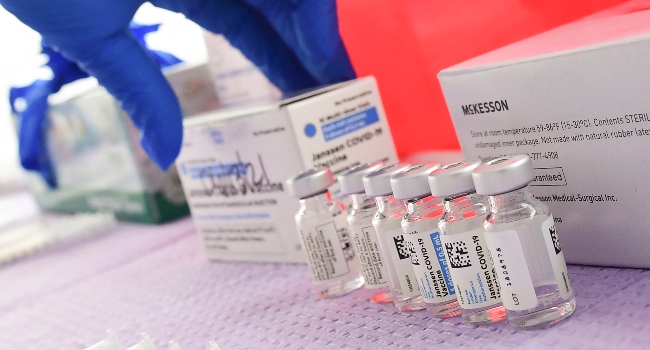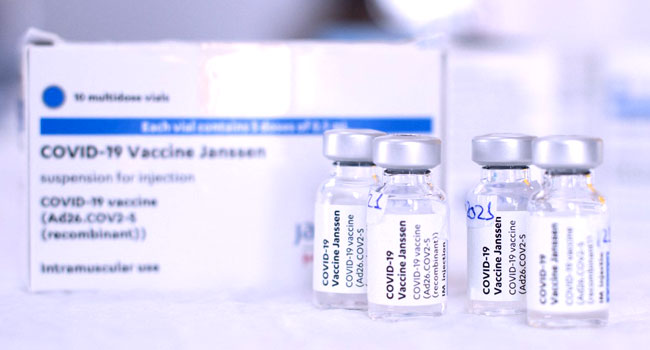
Frederic J. BROWN / AFP
The United States is shipping 840,000 doses of Johnson & Johnson’s Covid-19 vaccine to Uganda Tuesday through an international initiative for humanitarian crises, a White House official said.
This will be the first shipment of the J&J jab under the “humanitarian buffer,” a stock of vaccines managed by Covax, the international scheme aimed at ensuring vaccine access for poorer countries.
The US will also stockpile another 300,000 doses of J&J for distribution to humanitarian workers and UN peacekeeping missions worldwide, the official said.
US President Joe Biden has repeatedly said his country would be the world’s “arsenal of vaccines.”
His administration has continuously stated that US vaccine donations are unconditional and not intended to further diplomatic or strategic objectives.
The international community — with the support of Gavi, the public-private partnership that co-leads Covax — decided in March 2021 to establish a “buffer” stock of vaccines, which would be administered by international agencies or NGOs.
This buffer should benefit populations facing humanitarian crises, Gavi explained on its website, as well as vulnerable groups such as refugees, asylum seekers, people who are stateless, internally displaced people, migrants, minorities and people living in conflict-affected areas.




